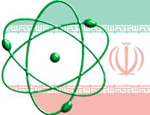 Washington Post: A new spike in anti-Iran rhetoric and military threats by Western powers is being fueled by fears that Iran is edging closer to the nuclear “breakout” point, when it acquires all the skills and parts needed to quickly build an atomic bomb if it chooses to, Western diplomats and nuclear experts said Friday.
Washington Post: A new spike in anti-Iran rhetoric and military threats by Western powers is being fueled by fears that Iran is edging closer to the nuclear “breakout” point, when it acquires all the skills and parts needed to quickly build an atomic bomb if it chooses to, Western diplomats and nuclear experts said Friday.
The Washington Post
By Joby Warrick
 A new spike in anti-Iran rhetoric and military threats by Western powers is being fueled by fears that Iran is edging closer to the nuclear “breakout” point, when it acquires all the skills and parts needed to quickly build an atomic bomb if it chooses to, Western diplomats and nuclear experts said Friday.
A new spike in anti-Iran rhetoric and military threats by Western powers is being fueled by fears that Iran is edging closer to the nuclear “breakout” point, when it acquires all the skills and parts needed to quickly build an atomic bomb if it chooses to, Western diplomats and nuclear experts said Friday.
The United States, backed by key European and Middle Eastern allies, is increasing the pressure on Tehran ahead of next week’s anticipated release of a U.N. report on Iran’s nuclear activities. The U.N. nuclear watchdog is expected to reveal new details about Iran’s past research into the physics of a nuclear detonation. Iran has long denied any intention to build a nuclear weapon.
A Western diplomat who has seen drafts of the report said it will elaborate on secret intelligence collected since 2004 showing Iranian scientists struggling to overcome technical hurdles in designing and building nuclear warheads. The scientists’ studies include computer modeling of warhead design and field-testing the kinds of high-precision conventional explosives used to trigger a nuclear chain-reaction, said the diplomat, who insisted on anonymity to discuss the board’s internal deliberations. Some of the work continued after 2003, when Iran is believed to have halted its nuclear weapons research in response to international and domestic pressures, the official said.
The Associated Press reported that U.N. officials have acquired satellite photos of a bus-size steel container used by Iran for some of the explosives testing. The wire service said the U.N. findings were contained in a 12-page annex to the report that is being circulated this week to the 35-nation governing board of the International Atomic Energy Agency.
But apart from the report’s findings are deepening concerns that Iran is preparing to cross a threshold that will bring the country’s ruling clerics within easy grasp of nuclear arms, diplomats and weapons experts say. Western governments are particularly alarmed by Iran’s recent efforts to boost the purity level of its enriched uranium while moving key parts of its nuclear program into underground bunkers, they say.
“We’re moving into very stormy seas,” said Olli Heinonen, who retired last year as chief inspector for the IAEA, the Vienna-based U.N. watchdog that conducts regular inspections of Iran’s nuclear facilities.
Although Iran’s nuclear program has weathered a damaging cyberattack and numerous other setbacks since 2009, its apparently successful deployment of advanced centrifuges in recent months could lead to a dramatic rise in the production of enriched uranium, Heinonen said.
Iran’s first-generation centrifuges “were not good enough for most reasonable breakout scenarios,” Heinonen said. “But the concern now is over whether it’s possible for them to ramp up production with these more advanced centrifuges,” which are estimated to be up to six times more efficient.
He noted that Iran’s atomic energy chief recently announced he would soon have “good news” about the country’s nuclear program. Similar pronouncements in the past have been followed by the unveiling of new nuclear technology or results of successful tests.
Western officials also have expressed dismay over recent Iranian decisions to redeploy the country’s newest centrifuge machines to the newly built complex known as Fordow, where they will be used to create a more purified type of enriched uranium that is closer to weapons-grade. Fordow was built into the side of a small mountain and is regarded as less vulnerable to airstrikes.
After watching Iran struggle last year to contain the damage from the computer virus known as Stuxnet, U.S. officials have followed the migration to Fordow with increasing dismay, said Jeffrey Lewis, a nuclear policy expert with the James Martin Center for Nonproliferation Studies, a nonprofit research group.
“After Stuxnet, there was a sense that we still had some time, but the Iranians kept on going,” Lewis said. “They said, ‘Fine, we’ll just put it under the mountain.’ And that move now looks a lot more aggressive.”
In response, U.S., British and French officials have sharpened their rhetorical attacks against Iran amid a flurry of news reports suggesting that Israel’s government is weighing a preemptive strike. The Israeli military announced Wednesday that it had tested a new model of a long-range missile and said warplanes had conducted training exercises simulating long-distance missions.
President Obama, speaking at the Group of 20 summit Thursday, cited the “need to maintain the unprecedented pressure on Iran,” while French President Nicolas Sarkozy warned that “France would not idly stand by” if Israel faced a threat to its survival.
Iran’s nuclear progress comes at a time when the country’s leadership is strained by scandal, political infighting and international controversy over allegations that it plotted to assassinate a Saudi diplomat in Washington. On Friday, tens of thousands of Iranians demonstrated against the United States in central Tehran, some of them carrying placards bearing photos of nuclear scientists that many Iranians believe were assassinated by Western agents.
“Obama, terrorist,” one of the signs read.


